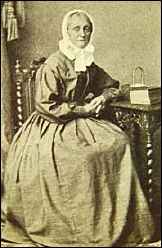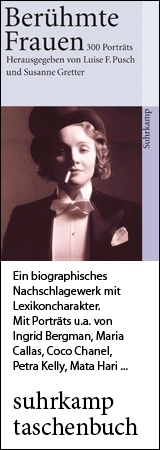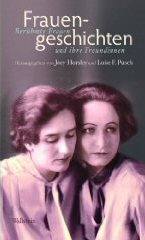
born on February 26, 1808, in Hamburg, Confederation of the Rhine
died on November 4, 1907, in Hamburg, the German Empire
German writer, school principal, and nurse
Biography
Nowadays she would probably be on welfare after having failed to find an employer willing to hire someone who possessed no formal qualifications and could only offer talents not generally held in high regard. But in nineteenth-century Germany and blessed only with these talents, she succeeded in making a real difference in nursing care. Certainly, an unqualified woman could make a contribution today — but only after she, like Elise Averdieck, was given the opportunity by an employer to work and to develop her full potential.
As the second of twelve siblings, Elise Averdieck was experienced in dealing with children and in organizing a household. A willingness to help others became second nature as she was her mother's main support. Her self-confidence, inner serenity and charity towards others were rooted in her deep faith. Equipped with these abilities and traits, she let her life unfold with trust in God's guidance — without ever questioning Him.
After spending several years caring for physically disabled girls in a hospital, she asked the authorities for a license to establish an elementary school for girls. “Exams and qualifications were not required at the time, the senator gave his permission, and that was that.” Her initial application was rejected, but she was later granted permission to set up a boys’ school. She had helped relatives by looking after their bored, preschool sons while waiting to hear from the authorities and had discovered that boys were “more robust, in keeping with my own robust nature.” She thus founded an elementary school for boys.
She became a very dedicated teacher: “...they loved me and I loved them. I could feel their love, even though it often surprised me, because I was strict, far too impatient, often harsh, never deviating from carrying out what I had threatened when a warning was ignored, and I suffered because of this, because a child never asked for anything they genuinely wanted, much less for my forgiveness. Not out of defiance, but out of fear, and in the conviction that asking would not help anyway. That was my greatest sorrow, and one I brought upon myself.” What balanced and empathetic criticism – and admirable self-awareness! Her commitment to education was also evident in the fact that, after searching in vain for suitable reading material, she began to write herself. She included the environment of a child in her stories, writing in a loving, appealing, and stimulating way about family, home life, games in the garden, housework, and celebrations. She was too modest to even consider publishing them, but was later urged to submit the texts to a publisher with the result that Karl und Marie as well as Roland und Elisabeth (among others) found a larger audience and became popular children's books.
When she heard a sermon about a teacher gradually being drained of her creative powers and thus needing to look for another profession in order to avoid fossilization, she interpreted this as a sign: “The Lord is taking the office from me.” Many of her students moved away or continued their education at higher schools. At the same time, she received private inquiries asking if she could take in people in need of care. She founded the Bethesda House after her landlord objected to the growing number of needy people she housed and attended to in her rooms. In addition to her own nursing work, she then began to train deaconesses. Bethesda joined the Kaiserswerth Association of Deaconess Motherhouses in 1862. Averdieck worked as a deaconess mother for 25 happy years until she resigned from her position. She died at the truly blessed age of 99.
(Text from 2007; translated with DeepL.com; edited by Ramona Fararo, 2025.
Please consult the German version for additional information, pictures, sources, videos, and bibliography.)
Author: Mechthild Winkler-Jordan
If you hold the rights to one or more of the images on this page and object to its/their appearance here, please contact Fembio.



